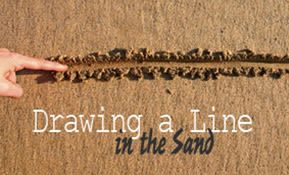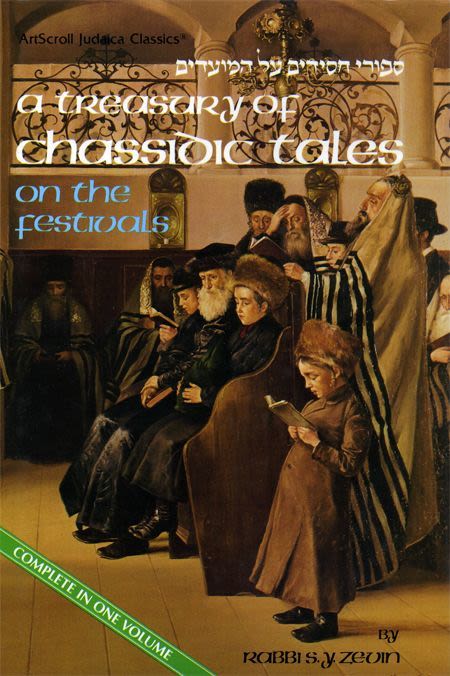
Acharei Mot: Food Fit for a Prince
In the same way that the son of a king is used to fine royal food and cannot stomach something repulsive, so too the land of Israel..

Shabbat at the Kotel is electrifying. Before the sun dips below the horizon, the Wall becomes illuminated with artificial lights as if it is the star of a film. There is a special, unparalleled intensity to the dovening (prayers), and a warmth that pours forth as thousands of Jews from every walk of life join together to welcome the holy day. I had always heard that in Israel, spirituality is almost tangible. After my first Shabbat at the Kotel, I can confirm the accuracy of that observation. Israel is a unique place on the face of the earth. Yet why is this so?
Despite the claims of the Israeli tourist ministry, the beaches are not what makes this country special. Surely other places have higher mountain ranges, deeper valleys, and more expansive oceans. Bad drivers exist on all continents, and somewhere else in the world there must also be butchers who chain smoke while they cut your meat, and rickety washing machines that manage to shrink, dye, and stain at least half of your laundry. There are sizable Jewish populations in many places in the world, so what is so special about Israel?
The argument is oftentimes posed that Jews need a homeland, but what makes this land so coveted that no other place on earth will suffice? Israel certainly isn’t the safest place, especially during the last two thousand years when every great world power has fought bloody wars for the right to claim the land as theirs. Why is this piece of real estate so special to the Jewish people and what can we learn from our national identity as a result?
This week’s parsha, amongst other things, deals with immoral sexual relationships. After reading which relationships are forbidden, the Torah states, “You shall safeguard My decrees and My judgments, and not commit any of these abominations…Let not the land vomit you out for having contaminated it, as it vomited out the nation that was before you" (Vayikra 18:26). Rashi explains this passage by comparing Israel to a prince. In the same way that the son of a king is used to fine royal food and cannot stomach something repulsive, so too the land of Israel cannot ‘stomach’ transgressors within her borders.
This sets Israel apart from the rest of the world. Imagine Germany, England, America, or Thailand expelling those people who do not adhere to the laws of the land. Our sages draw a parallel between the ancient Canaanites and the ancient Egyptians. Though both societies engaged in sinful behavior, only the Canaanites lost their claim to the land as a result of their immorality. The reason for this, explains the rabbis, is because Eretz Yisrael is not assigned to any heavenly forces. Whereas in other lands, Hashem uses spiritual intermediaries to interact between Heaven and Earth, Israel is God’s own province, and in the King’s own land, a higher standard of behavior is required. Israel is the King's palace, and to have the privilege of residing there, we must behave as royalty
In Parshat Lech Lecha, Hashem gave His land, Eretz Yisrael, to the Jewish people as an enduring birthright. It was the first commandment given to the first Jew in history (Bereshit, 12:1) and has since stood as our undeniable claim to the land of Israel. Although we haven’t shown the Torah to the United Nations as proof to our claim to Israel, anyone who opens the Bible sees that Eretz Yisrael was promised to the Jewish people. This gift, however, is not unconditional. In Parshat Acharei Mot, Hashem strengthens and defines the parameters of our birthright by demonstrating the potent holiness of the Land. The land of Israel is so sacred that simply descending from Torah royalty does not entitle us to it; we must act in accordance with the laws of the Torah to have the privilege of remaining in our Holy Land.
On Tisha B’Av, the Jewish people mourn the destruction of both of our Holy Temples, which were destroyed on that day in 421 B.C.E, and 70 A.D, respectively. From these tragic events the Jewish people were spread across the face of the Earth, and were subsequently subjected to the two thousand year-long exile in which we live today. Historians will point to the physical causes of the conquering of God’s holy city. Skeptics will question how an all powerful God could allow such a thing to happen to His people. Jews simply need to turn to this week’s parsha to understand the cause of our national tragedies.
The destruction of the two Temples and our exile from the Land of Israel shows with no uncertainty that the same Divine hand that wrote the Torah, sketches Jewish destiny into the pages of our history. During the time leading up to our exile, the Jewish people sunk to low levels of immorality and impurity. We were not worthy of living in such a holy, perfect land, and as a result we were expelled from it. Not only did the Jews suffer exile but the entire world lost its great light. The Talmud in Brachot 31a explains that Jerusalem is meant to be the source of inspiration to the world and the place from which Torah and the word of God emanate. “Ever since Nebuchadnezzar, king of Babylon, laid siege to Jerusalem, the voice of the Holy City has been muted. It ceased to be the spiritual beacon for the world, it lost its role as the primary center of Torah study, and the ‘word of God’ could no longer be heard coming forth from its Gates" (R. Mordechai Becher, Gateways to Judaism, p 238).
Despite the Jewish peoples' long exile, we have never ceased to long for our return. We say in Tehillim, “If I forget you, O Jerusalem, let my right hand forget its skill. Let my tongue adhere to my palate if I fail to recall you, if I fail to elevate Jerusalem above my foremost Joy" (Tehillim 137). Our redemption has not yet occurred; although, thank God, the Children of Israel have started returning home, yet, until the Moshiach's arrival and the Temple is rebuilt, it is impossible to conceive of Jerusalem's former glory. We long for the Moshiach's arrival and for the entire world to recognize the God of Israel as the true king.
Yet with so many Jews worldwide having lost their connection to Torah, and with the land lying barren for so long, isn’t this goal too lofty? From the smoldering ashes of Ancient Jerusalem to the stained black smokestacks of Auschwitz to increasingly high rates of assimilation in America, it is all too easy to see Jewish history as one long depressing tragedy. Yet we must never see tragedy as in end into itself.
The Chofetz Chaim teaches us that it is almost impossible for a person to descend so far into the depths of misunderstanding that he cannot find his way out. Says the Chofetz Chaim, “‘If someone has bad breath from eating garlic, should he worsen matters by eating more?’ Complete repentance makes one as pleasing to G-d as if he has not sinned at all. ‘After repentance, one’s evil past shall pose no impediment' (Yechezkel 33:12)" (Let Them Serve Me, the Chofetz Chaim on Sefer Vayikra).
Rebbi Nachman expounds further, saying that “the greatest homage paid to God’s glory is precisely that His most distanced children return to Him. The Zohar tells us, “When Jethro arrived, God’s name was glorified on Earth as it was on High.” Jethro, who had devoted himself to seventy forms of idolatry, finally discovered the Torah!" (Courage! Despair Does not Exist!).
The Gemara recounts the famous story of Rabbi Gamliel, Rabbi Elazer Ben Azariah, Rabbi Yehoshua and Rabbi Akiva's visit to the ruins of the Temple Mount. The four rabbis saw a fox run out of the ruins of the Holy of Holies, and, with the exception of Rabbi Akiva — who started laughing — they began to cry. They asked Rabbi Akiva, “Why are you laughing?” He responded, “Why are you crying?” They answered, “The place about which it is written that any alien (non-Kohen) who approaches shall die, now has foxes walking in it! Shouldn’t we cry?” Rabbi Akiva retorted, “That is why I am laughing.” The prophecy of the ultimate redemption of Zechariah is contingent upon the prophecy of destruction by the prophet Uriah. In Uriah it is written, “And, therefore, because of you Zion shall be plowed like a field (where foxes live). In Zechariah it is written, “The old men and women will return and sit in the streets of Jerusalem. Now that the prophecy of Uriah has been fulfilled, we know that the prophecy of Zechariah will also be realized!” Rabbi Akiva realized that this tragedy was necessary for the recognition of our sins and would lead to our desire to return with a pure heart.
In Parshat Acharei Mot, we are told to uphold Hashem's laws and not to contaminate the land. From this we can deduce Eretz Yisrael's tremendous holiness, because here, unlike anywhere else on Earth, how we behave really does matter. In the past, we sinned and lost our right to live in Israel. Yet, the Holy Land of Israel, which Hashem promised our people, is waiting for our return. It says in Devarim 30:3-5, “And the Lord your God shall return you from your captivity, and have compassion upon you; and He shall return and gather you from among all the actions to which the Lord your G-d has scattered you…And the Lord your G-d shall bring you into the land that your fathers inherited.”
The fact that Israel, the most holy place on Earth, was given to the Jewish people, is proof of our tremendous spiritual potential. In the same way that a beautiful, exclusive, and sparkling diamond comes with a hefty price tag, we pay a price to live in our exalted land – through the currency of mitzvah observance. Through mending our deeds and cleaving to Torah, we can merit our return to the Holy Land. As it says in the Song of Songs, “My faith is firm as a wall, and my nourishing synagogues and study halls are strong as towers! Then, having said so, I (the Jewish people) become in His eyes like a bride found perfect.”
Despite all our sins and all of our pain, the redemption of the Jewish people and the subsequent return of Jerusalem as the spiritual light to the entire world, is contingent on our ability to do mitzvot. It is within our power, today, to rebuild Jerusalem, and to refine our actions to such an extent that they would be like royal food fit for consumption by a Prince, the land of Israel. May we all merit to use our great potential to its fullest and in the process see the City of Gold restored to all her beauty.












Tell us what you think!
Thank you for your comment!
It will be published after approval by the Editor.